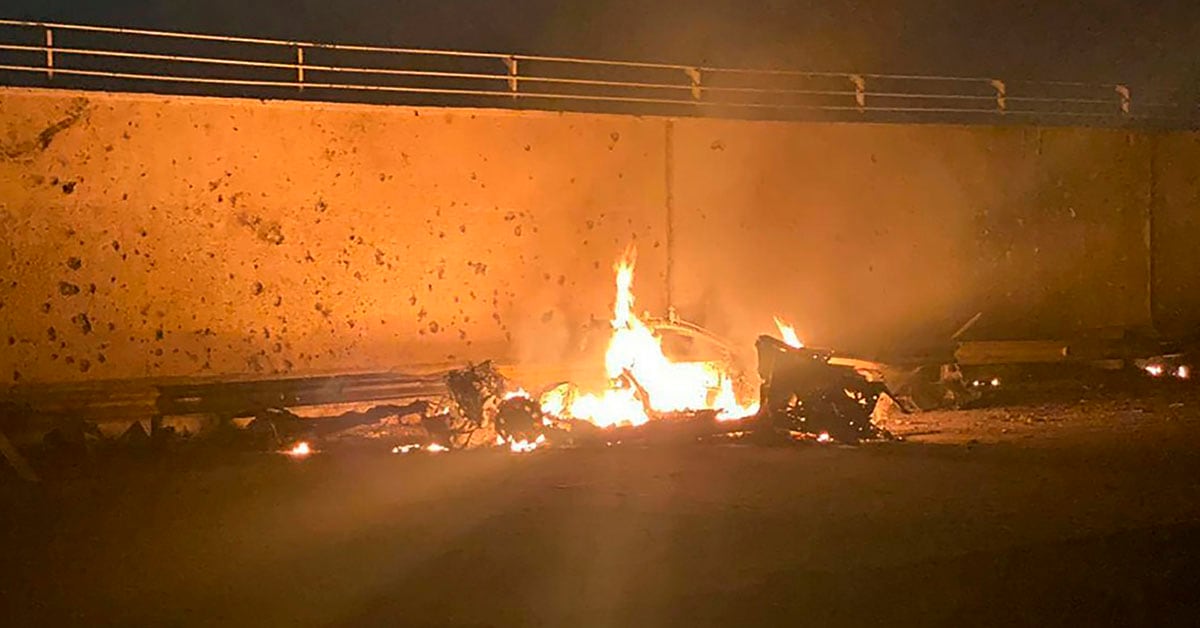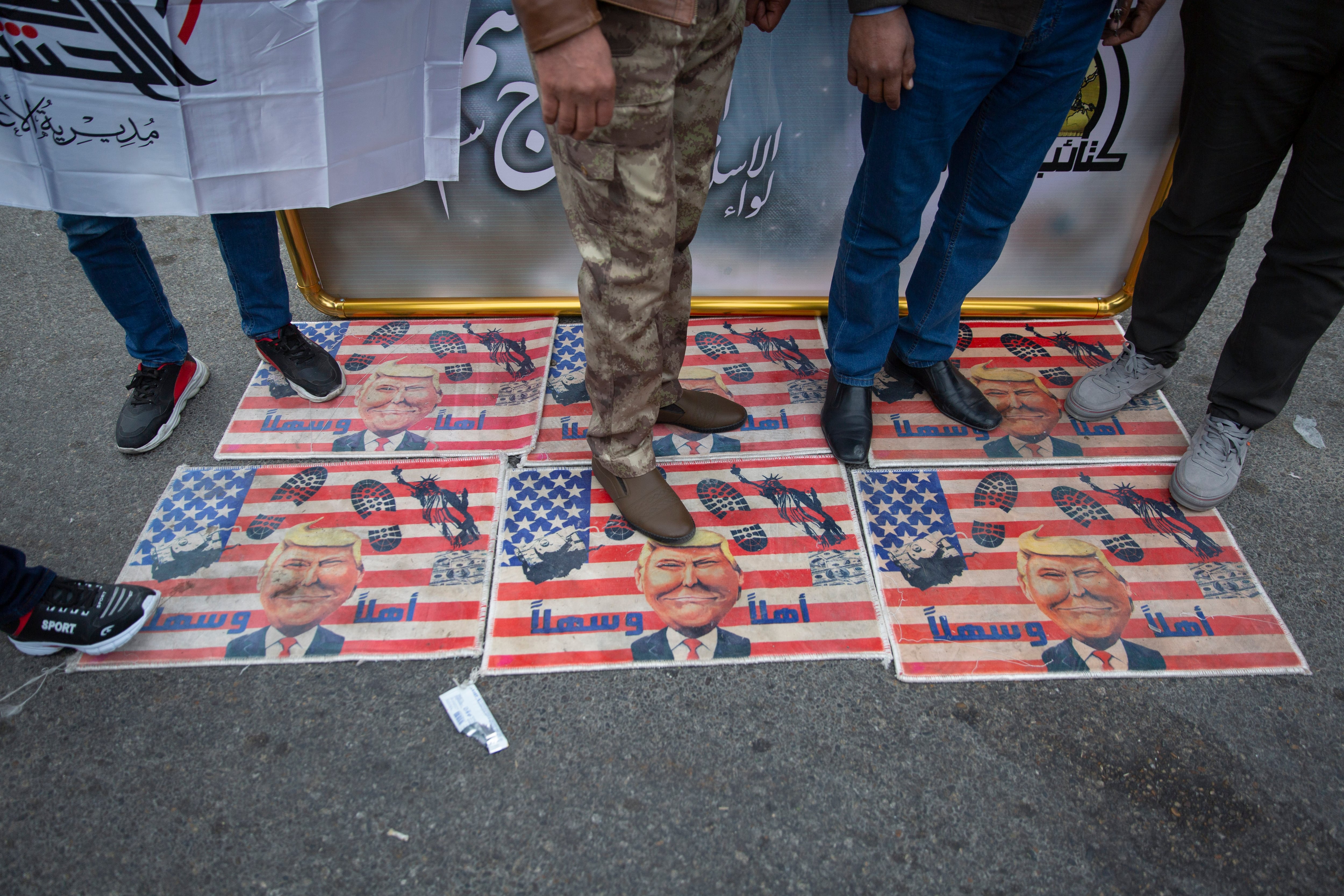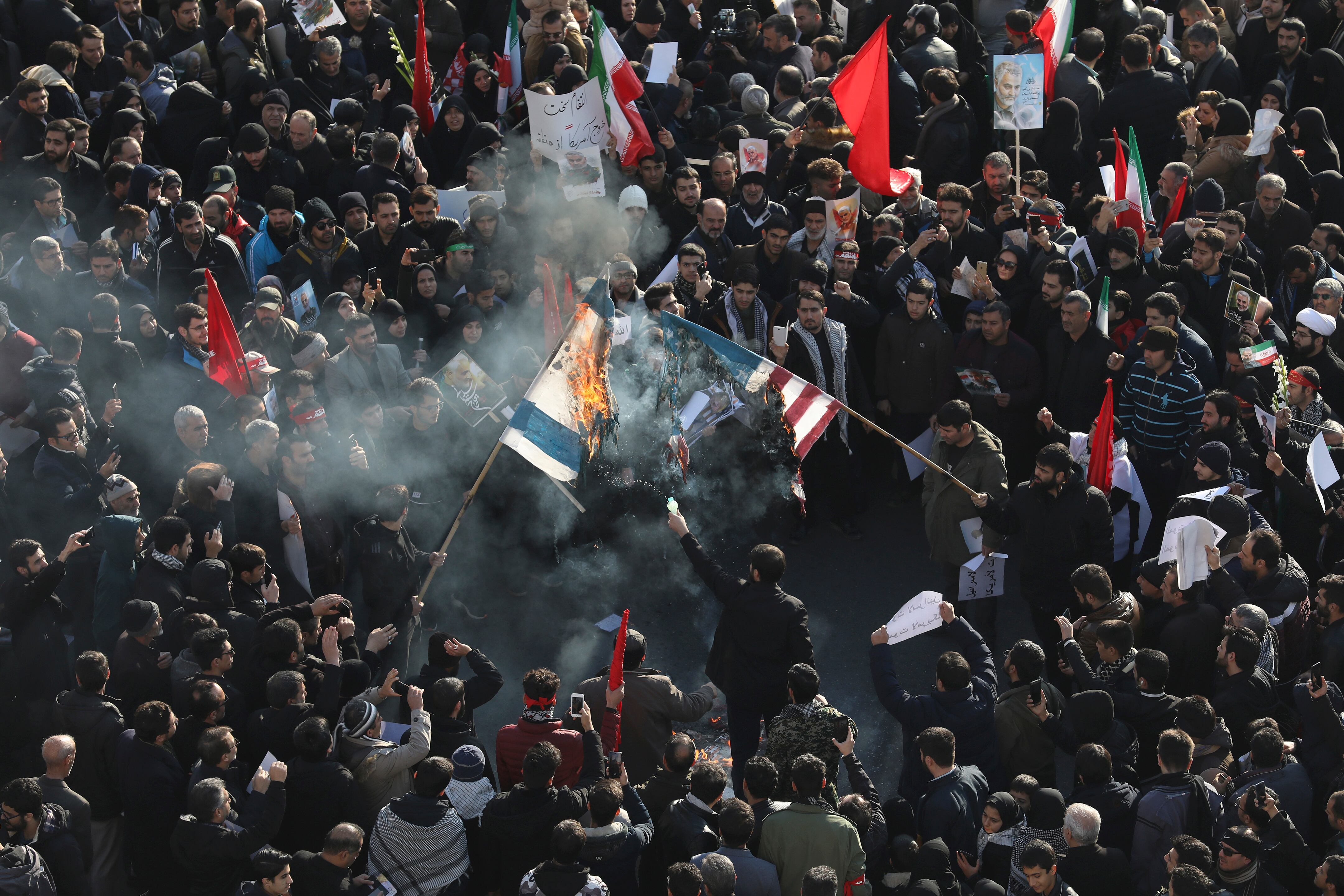Perhaps more than anywhere else in the Middle East, the roughly 9,300 U.S. troops and family members stationed in the tiny island nation of Bahrain live among the locals.
Outside the gates of Naval Support Activity Bahrain in the capital Manama, service members rent apartments, eat at restaurants and shop in malls.
But several Iran-backed Shia militias call Bahrain home, too.
And those militias have declared the American presence in Bahrain fair game for retaliation after a Jan. 3 U.S. drone strike killed Iran Revolutionary Guard Corps commander Gen. Qassem Soleimani.
As President Trump’s Twitter-fueled rhetoric against Iran increases, and with Tehran vowing revenge, some regional analysts say U.S. personnel stationed in Bahrain as part of the Navy’s 5th Fleet present a unique target of opportunity for Iran-backed cells.
But other experts say Bahrain’s security forces in recent years have rooted out these violent groups.
In a Jan. 3 statement translated by The Middle East Media Research Institute, the leaders of several Bahrain-based militias lamented Soleimani’s killing.
One was al-Ashtar Brigades, a group dedicated to the overthrow of Bahrain’s Sunni monarchy. The U.S. State Department designated it a terrorist organization and Iranian proxy in 2018.
“It behooves us to respond with determination to this crime and to lead the response to the tyrants,” according to the institute’s translation of the statement. “We view all [U.S.] interests, and [the American] presence in Bahrain, as legitimate targets for us, and we will play a role and take a position in avenging the precious blood of the righteous martyrs.”
Iran provides al-Ashtar with training, funding and weapons, enabling the group’s terrorist attacks, Nathan Sales, a U.S. State Department official, said in 2018.
The group has claimed responsibility for roughly 20 bombings against security personnel since 2013, according to the Congressional Research Service.
If Iran’s militant loyalists in Bahrain pivot from overthrowing the island’s rulers to join other Iranian proxies in reprisals against America for Soleimani’s death, U.S. forces and families in Bahrain present an easy target, according to Rebecca Wasser, a senior policy analyst with the RAND Corporation who focuses on U.S. defense and foreign policy in the Middle East.
“It’s not fear-mongering, but if you look at the way in which Iran could choose to retaliate in response to the attack, it is most likely going to be through proxies and those proxy groups could inflict damage on U.S. service members and U.S. equities that exist around the region,” said Wasser, who previously lived and worked in Bahrain.
“If you’re looking at it through that lens, Bahrain seems to be a fairly ripe target…based on the fact that service members live among the general population,” Wasser said. “It’s very easy, if any group wanted to, to target U.S. military personnel. You walk five meters and there is a U.S. service member.”
RELATED

While Wasser and other regional analysts said they don’t expect a massed militia assault of the Navy base in Bahrain, isolated attacks against U.S. personnel remain relatively easy forms of terrorism that could reverberate far beyond Manama.
“If you look in the Gulf, the one that seems to be very vulnerable to potential one-off attacks seems to be U.S. service members in Bahrain,” she added.
Officials with 5th Fleet declined to answer questions this week about what is being done to protect the troops and families stationed in Bahrain.
“We take the safety of our personnel very seriously, especially our families,” command spokesman Cmdr. Joshua Frey said in an email. “We remain vigilant to assess threats and are monitoring developments in the region closely. In concert with our Bahraini hosts, we maintain robust capability to defend ourselves. We do not discuss specific force protection measures.”

U.S. military members have coexisted on the island with these groups for years, and several Shia areas of the island already are off limits for American personnel.
Phillip Smyth, a fellow at the Washington Institute think tank who specialize in Shia militarism, told Navy Times that while Bahrain’s security forces have “had a number of monumental successes when it comes to arrests and dissembling cells,” that "doesn’t mean these groups don’t have secret abilities we don’t know about.”
These militias are sometimes commanded by leaders in Iran, but he doesn’t think Americans in Bahrain should worry about hordes of militiamen on the streets outside their apartment buildings.
“We’re not talking about hundreds and hundreds of people,” Smyth said.
At the same time, he added, “all you need is a few core members who are well-trained and well-motivated.”
Shia militant groups repeatedly have emerged and been contained by Bahraini security forces since the Arab Spring uprising of 2011, according to a Michael Knights, a Washington Institute fellow who focuses on Persian Gulf military and security affairs.
While prior insurgents hit security forces with roadside bombs, led sophisticated prison breaks and smuggled weapons onto the island, Knights said “the militant effort in Bahrain is perhaps at a low ebb” right now.
“The reality is the Bahraini security forces have been highly effective in managing three generations of post-Arab Spring militancy,” Knights said. “That’s the best defense for U.S. interests in Bahrain.”
But a random attack on off-duty personnel is always possible, he said.
“Anyone feeling particularly bad about Soleimani dying could do that,” Knights noted.
To Knights, Tehran’s calculus for avoiding direct blame through proxy attacks also might have changed in the wake of Soleimani’s slaying.
“Right now, I think we’ve got a pretty good deterrent framework in place,” Knights said. “They see that we are not in the mood to trade blows.”
In the meantime, Knights believes U.S. personnel in Bahrain should remain “highly security conscious.”
“Even though they’re being protected by one of the most effective internal security forces in the world, and even though Bahrain is a small place, no security system is 100 percent,” he said.

A CIA report provided to Navy Times on Jan. 5 warned that analysts long suspected that U.S.-Iranian hostilities would trigger an order from Tehran’s clerical leaders to retaliate with missile attacks on American military headquarters in Bahrain.
Over the past decade, however, Iran and its proxy militias in Lebanon and Iraq also began "an unprecedented effort” to develop militant cells in Bahrain, according to a 2018 report by Knights published by the Combating Terrorism Center at West Point.
The 2011 Arab Spring crackdown on Shia protesters by the authoritarian U.S.-backed Sunni monarchy pushed some of those protesters and Iranian intelligence services together “toward a new level of militancy.”
The fourth iteration of Bahrain Shia militants now is likely undergoing training by Kata’ib Hezbollah, a paramilitary group in Iraq backed by Iran, Knights told Navy Times.
Its commander, Abu Mahdi al-Muhandis, died in the drone missile strike that killed Soleimani.
Tehran would love to depose Bahrain’s Sunni rulers but the American presence there helps prevent an invasion by Iran’s Islamic Revolutionary Guard Corps, Knight noted.
“The U.S. military deters direct attacks and the Bahraini security services deter against indirect” attacks, he said. “That’s the best you can get and it’s pretty good.”
Despite the proclamation, it also remains unclear if the militant organizations that remain in Bahrain’s shadows would follow orders issued by the Iranian patrons who trained and equipped them.
“When you give some type of capability or funding or knowledge, you can’t always control what gets done with it,” Wasser said.
Geoff is the managing editor of Military Times, but he still loves writing stories. He covered Iraq and Afghanistan extensively and was a reporter at the Chicago Tribune. He welcomes any and all kinds of tips at geoffz@militarytimes.com.



